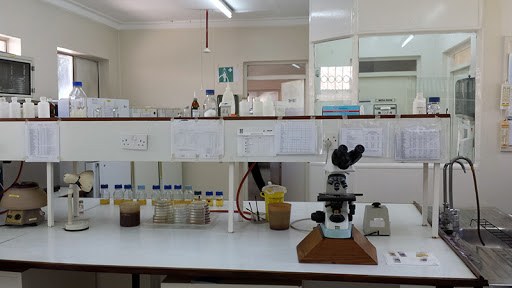Author: BERNARD LUGONGO
AfricaPress-Tanzania: TANZANIA Veterinary Laboratory Agency (TVLA), is at advanced stage of acquiring international accreditation for veterinary laboratory services, a development which would see booming of meat export.
The TVLA has already reached 80 percent of requirements needed to get the accreditation which would provide room for having its veterinary tests results recognized globally.
To walk the talk, over the weekend, the TVLA received over 30 types of laboratory facilities, valued at 481m/-, from the programme as part of efforts to improve its capacity and standards.
Deputy Minister of Livestock and Fisheries, Mr Abdallah Ulega, said the agency would have more capacity of addressing emergencies in the food chain, particularly zoonotic and other high impact diseases.
“The aim is to see the country’s high population of livestock boost the economy,” the deputy minister said.
After global accreditation, the country would earn trust from meat buyers in the international market, a move which would boost more meat export and make the sector attract more foreign currency and contribute more to the country’s economy.
The on-going efforts are to construct more meat processing industries and abattoirs in each district needed capacitated laboratories to cater for veterinary laboratory services in the country.
FAO team leader for Emergency Centre for Trans-boundary Animal Diseases (ECTAD) programme, Fasina Folorunso, said the agency was supporting and capacitating the laboratories through technical support, workforce development and deliveries of equipment and consumables.
He said the donated equipment would be used in the diagnosis of domestic, livestock and wildlife pathogens and other national priority zoonotic diseases in the livestock populations and food chain in the country.
The Chief Executive Officer of the TVLA, Dr Furaha Mramba, said the agency currently operates eleven laboratories, out of which seven are zonal ones.
Out of 13 country’s crucial veterinary vaccinations, the TVLA produces six of them and the remaining vaccinations have been imported by dealers.
However, Dr Mramba noted that plans were afoot for the TVLA to start importing those vaccinations and sell to the livestock keepers at indicative prices, a bid to relieve farmers from high prices charged by dealers.
One of initiatives was implementation of the Global Health Security Agenda (GHSA-ZDAH) programme in collaboration with the Food and Agriculture Organisation of the United Nations (FAO).
Funded by the USAID, the programme aims to mitigate future health threats and to accelerate compliance with the World Health Organization (WHO)’s International Health Regulations (2005).
Under this programme, there were a number of interventions made to empower the TVLA through material and technical support.
Some of the equipment and their quantity in brackets were Upright Laboratory Freezer (Liebherr), Halogen Lamp for Applied Biosystems 7500 Fast Real Time PCR system (3), Deserman Gel, bottles (7), 2mL collection tubes, 1000/pk (10) and Autoclave tape (10).







